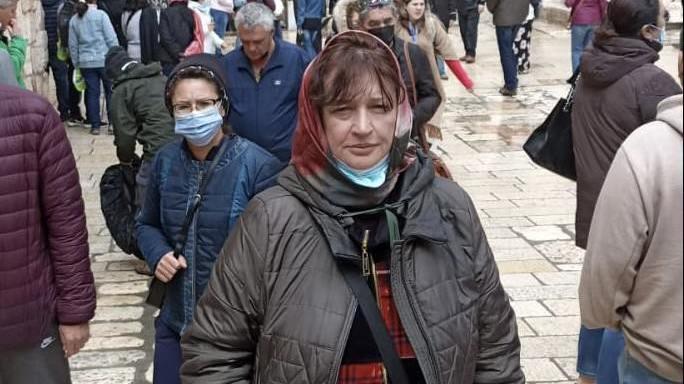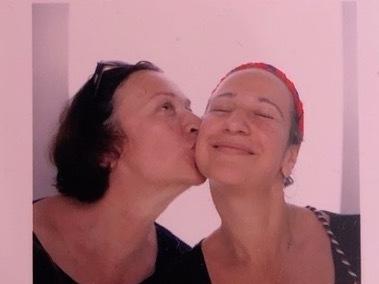Section Branding
Header Content
When deciding to flee Ukraine means leaving a family member behind
Primary Content
33 year old Sofia Bretl has lived in New York City for the last decade, but she was born and raised in the Ukrainian city of Kharkiv about 25 miles from the Russian border. The city has been one of the hardest hit by Russian forces. Over the last month, Sofia's been in constant communication with her family back home. Sofia sat down for a series of interviews with Radio Diaries, documenting the difficult choices they've had to make as the violence escalates.
Sofia's mother, Vita Linnik, is 55. Before the Russians invaded in February, Sofia says her mother cared for her 92-year-old great aunt, Vanya Guseba. Vanya lives on the other side of the city in the Saltivka neighborhood of Kharkiv. Vanya has had a mental disability most of her life and over the last year, she's grown physically weaker, now unable to walk on her own. Vita cared for her with help from one of her aunt's neighbors, a retired home health aide. "She's helpless," Sofia says of her great-aunt, "she doesn't even understand there's a war going on."
When Russian forces began their assault on the city, it became too dangerous for Vita to travel across town to visit her aunt, but Vanya's neighbor agreed to continue watching over her. When the shelling began, Sofia says, her mother sheltered in the hallways and basement of her apartment building with other residents. As the bombardment grew worse, people began to evacuate, but she refused. She didn't want to leave Vanya behind entirely.
By the second week of March, most of the residents of Vita Linnik's apartment building had left: only 2 families remained. One of Vita's friends decided to leave and encouraged Vita to do the same, saying she risked death if she stayed. Sofia Bretl remembers telling her mother "You need to make a decision. I want you to leave, because I want to have a mother. I'm sorry to put it this way, but it's me or the aunt."
Vanya's caretaker was planning to stay in Kharkiv with her 20-year-old grandson and did not intend to evacuate. She told Vita that leaving was a terrible decision, but there was nothing she could do to stop her.
Vita Linnik ultimately decided to get out of Kharkiv. She and a friend traveled by bus and finally crossed the border into Moldova. Her friend is Jewish, allowing them both to evacuate to Israel, where Vita was given permission to stay on a temporary visa. Sofia flew there to join her, hoping to bring her to the United States.
She's relieved her mother is out of the country, but understands the guilt she feels for leaving her aunt behind. "I do not know if she will ever forgive herself," Sofia says, "But this is the decisions that war puts people in front of: Which life to choose."
An estimated 40 million people still remain in Ukraine. Some, because of their age, ill health or disability, are unable to leave on their own and rescue organizations are struggling to get them out. Vanya Guseba's neighborhood has been under almost daily bombardment, and authorities have evacuated her to a care facility in Kharkiv.
This story was produced by Joe Richman of Radio Diaries. It was edited by Deborah George and Benjamin Shapiro. Thanks also to Nellie Gilles, Mycah Hazel, Alissa Escarce and Stephanie Rodriguez. The story featured music from Ukrainian band DakhaBrakha. They're based in Kyiv, but left the country when the war began. You can hear more stories like this one on the Radio Diaries podcast.
Copyright 2022 NPR. To see more, visit https://www.npr.org.


